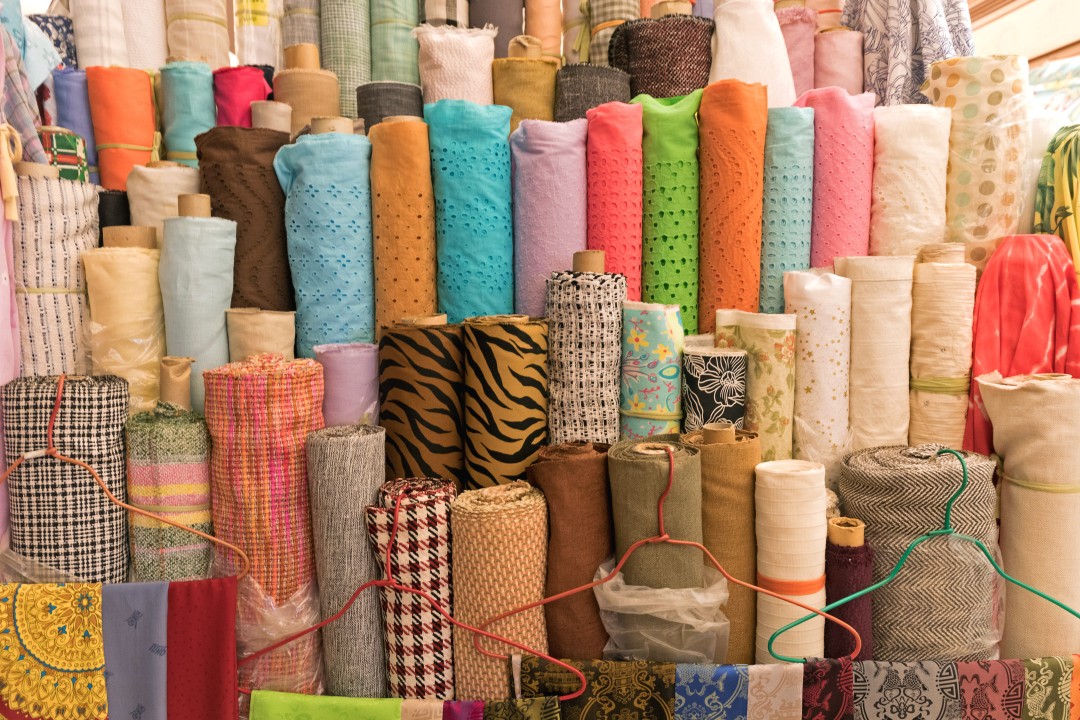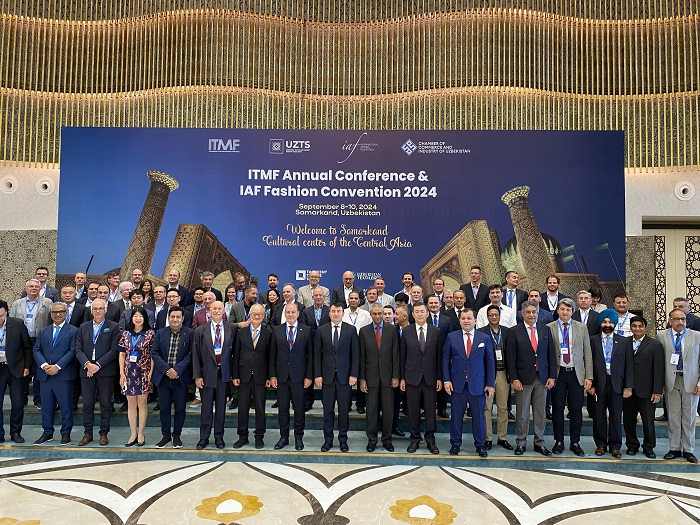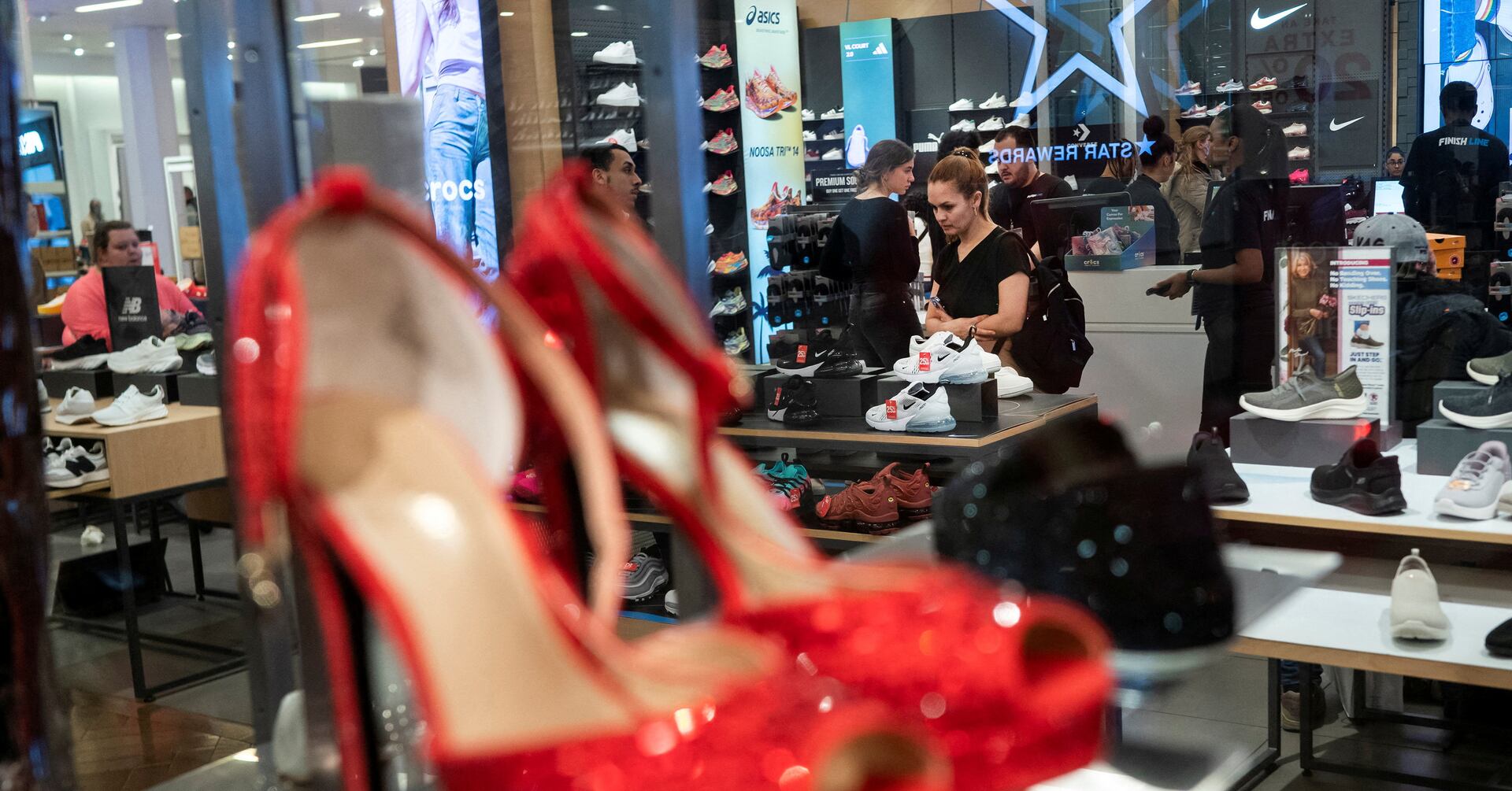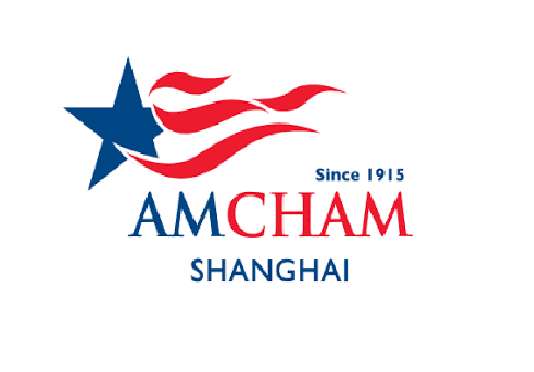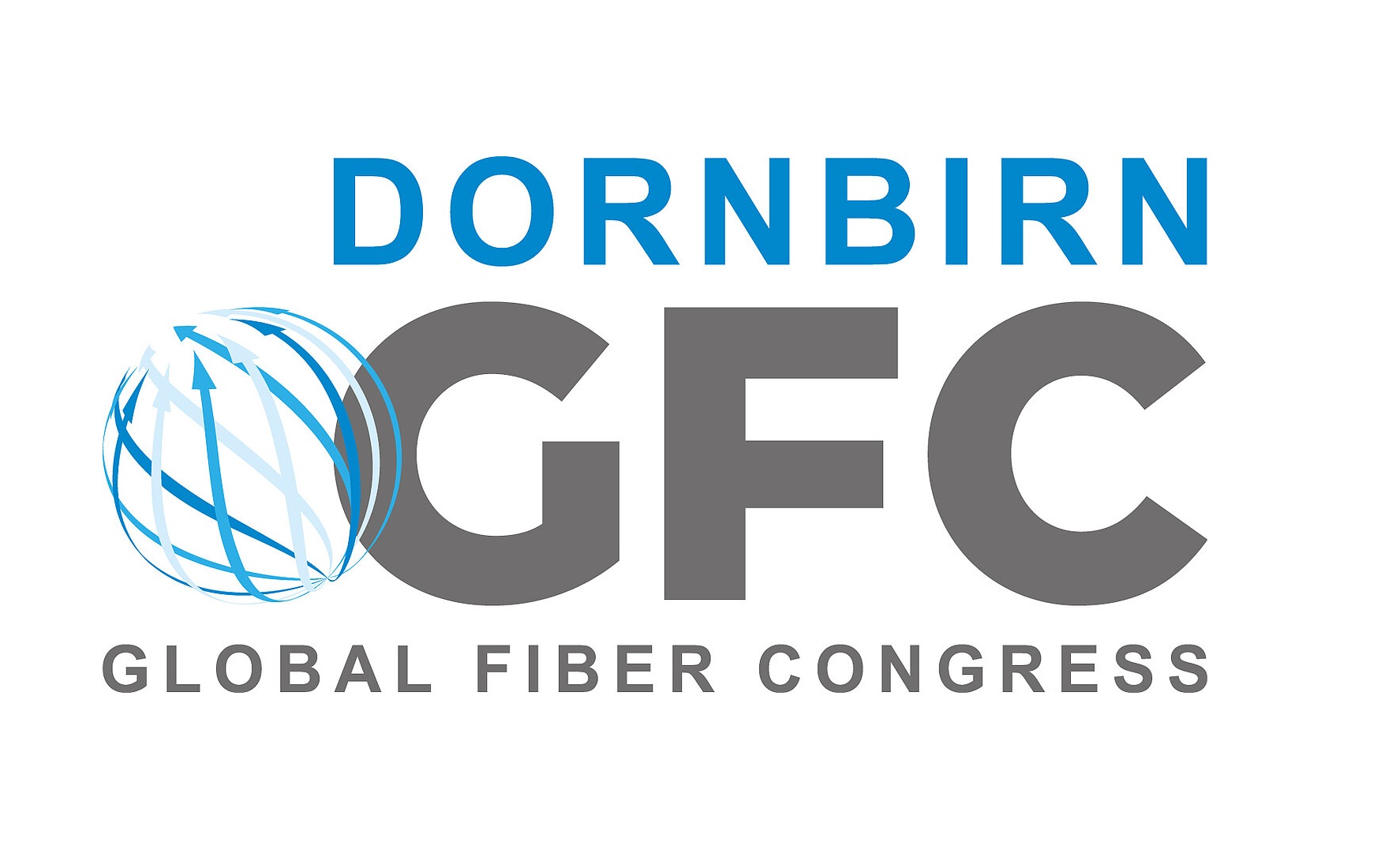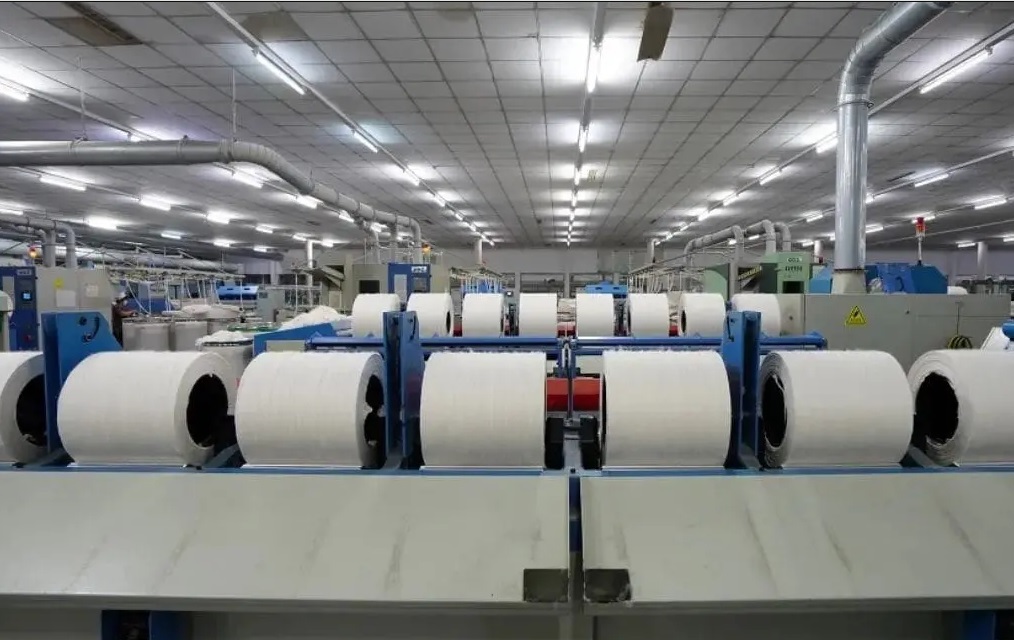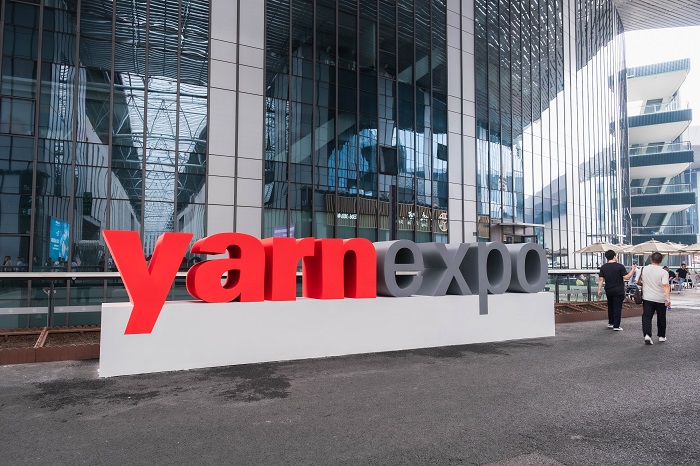FW
Over the past two weeks, the knitwear export industry in Tiruppur has secured orders worth Rs 450 crore as brands from Germany, the Netherlands, and Poland turn to India amidst Bangladesh’s political instability, as per a report byThe Economic Times.
Retailers like KiK, Zeeman, and Pepco have placed urgent orders for garments priced around $3 each, with delivery set before Christmas and New Year, says KM Subramanian, President, Tiruppur Exporters’ Association (TEA).
These orders include a range of knitted garments, such as kids' wear, nightwear, tops, and pyjamas. This surge in demand, particularly before Christmas, is unusual for the Tiruppur hub, as brands typically place orders in December and January for the spring/fall season or in June and July for the holiday season, notes Subramanian.
Additionally, global brands have initiated social audits at 10 newly selected knitwear factories in Tiruppur, signaling the potential for more orders. The audits are expected to be completed by mid-September, and if these factories meet global standards, more orders will likely follow in the New Year.
The Noida Apparel Export Cluster (NAEC) reported a 15 per cent increase in orders from Zara over the past month, compared to the same period last year. Zara has placed large orders for women’s tops and dresses, priced between $5 and $9, with tight delivery timelines of 60 days, an unusual surge at this time of year.
A Sakthivel, Head-Southern Region, Apparel Export Promotion Council, attributes some of this order rerouting from Bangladesh to India’s stable conditions. However, India could capture even more orders if a free trade agreement (FTA) with the European Union is finalised, as Bangladesh benefits from its existing FTA with the EU, he emphasises.
In FY24, India's apparel exports grew to $14.5 billion with RMG exports hitting $3.9 billion in Q1 FY24. The ratio between India’s and Bangladesh’s apparel exports narrowed to 2.5 times in Q1 FY25, indicating India’s growing global market share.
A crucial player in the $55bn global fast fashion industry, Bangladesh faces an uncertain future after weeks of protests toppled Prime Minister Sheikh Hasina’s government in August, leaving hundreds dead. With production stalled due to a nationwide internet blackout, major brands like Disney and Walmart have already shifted production elsewhere for next season.
Political unrest continues, with 60 factories around Dhaka expected to close due to worker protests demanding better wages. This turmoil could result in around 20 per cent drop in garment exports, which make up 80 per cent of the country's export revenue. Even before the unrest, Bangladesh's garment sector was struggling with child labor scandals, deadly accidents, and pandemic-related challenges. Rising production costs, shrinking profits, and a weak economy, exacerbated by excessive infrastructure spending and cronyism, further destabilized the country’s financial system.
DrAhsan Mansur, Governor, Central Bank is focused on repairing the financial damage but warns it will take time, with an IMF bailout likely needed. Business leaders are concerned about falling foreign currency reserves, which hinder the import of raw materials for garment production.
The root of the protests, however, lies in deeper socio-economic issues. Accounting for millions of jobs, factory workersare struggling on wages below the national minimum, leading many to join student-led demonstrations. Young graduates lack of well-paying jobs, as the education system fails to equip them with the necessary skills.
The new interim leader, Nobel laureate Muhammad Yunus, is tasked with reviving the economy, diversifying beyond the garment sector, and tackling corruption. His challenges range from managing international relations to mitigating climate change impacts. Despite this, many are hopeful that Yunus can bring much-needed reforms to stabilise Bangladesh's future.
As per the report for 2024/25 for India’s cotton industry released by Foreign Agricultural Service (FAS) of the US Department of Agricultural, India’s cotton production will grow to 25 million 480-pound bales during 2024/25.
However, the area under cotton cultivation will decline by 2 per cent 11.8 million hectare (29.2 million acre) compared to the previous forecast, as many farmers have opted to shift from cotton to higher-return crops like paddy and pulses.
Currently, India has completed cotton cultivation on 11 million hectare, with sowing still underway in southern India. Lint prices in India are trading eight to nine cents above global prices, leading mills to import cotton until new arrivals begin in October. Mill consumption is forecasted to rise by 2 per cent to 25.5 million 480-pound bales, from the previous estimate, driven by growing demand for cotton yarn and textiles in international markets.
The German jeans brand Mustang has strengthened its commitment to sustainability by becoming a Signatory Brand of the ZDHC (Zero Discharge of Hazardous Chemicals) initiative.
After two years as a ‘Friend of ZDHC,’ Mustang is now intensifying its efforts to eliminate hazardous chemicals from its textile production processes, aligning itself with environmentally friendly practices.
ZDHC is a global initiative aimed at eradicating the use of harmful chemicals in the textile industry. Mustang joins an impressive roster of leading brands, including Adidas, Nike, H&M, Levi's, and the Inditex Group, that have already committed to this cause.
At the heart of ZDHC's mission is the MRSL (Manufacturing Restricted Substance List), which outlines chemicals that are either restricted or prohibited during production. Mustang has been implementing the MRSL since 2022 across its supply chain. To ensure compliance, Mustang's use of chemicals is verified through ZDHC-accredited labs that conduct wastewater testing, ensuring that no banned substances are being used by Mustang or its suppliers.
With the tools provided by ZDHC, such as wastewater testing and chemical inventory disclosure, Mustang ensures that its supply chain adheres to the initiative’s strict standards. Officially becoming a ZDHC Signatory Brand allows Mustang to further integrate sustainability into its operations.
As a Signatory Brand, Mustang is now positioned to actively contribute to the development of ZDHC programs. The company participates in monthly ZDHC Brand Advisory Calls and various working groups, collaborating with other major brands to shape the future of the industry. This membership also provides Mustang with opportunities to share best practices, discuss new ZDHC standards, and benefit from industry-wide knowledge sharing.
Additionally, Mustang conducts annual self-assessments as part of the ‘Brand To Zero Program,’ which helps the company develop a roadmap for its sustainability goals. These assessments are reviewed by third-party evaluators to ensure progress is on track.
By joining ZDHC as a Signatory Brand, Mustang reaffirms its commitment to responsible corporate governance and sustainable practices, not only for the environment but also for employees along its supply chain and future generations.
Led by denim expert Sandeep Agarwal, a leading organization specialising in denim-focused trade shows, Denimandjeans will organise its upcoming event on Feb 02-03, 2025 at IHG Citystars in Cairo, Egypt. This new show will add to the series of trade exhibitions already taking place in key regions like India, Vietnam, Japan, and Bangladesh, further expanding the organization’s global footprint.
Set to transform from a renowned tourist destination into a rising powerhouse for textile and apparel production, Egypt is gaining recognition as a reliable and efficient hub for denim and other textiles, solidifying its role in the global market.
Egypt’s emergence as a significant player in denim and textile production is driven by several factors. The textile and apparel sector is the country’s second-largest revenue source after services.
In 2020, Egypt’s textile industry boasted 3,243 companies with a total investment of $3.2 billion, producing 315 million apparel pieces annually and exporting 305 tons of clothing and textiles.
By January 2022, Egypt’s garment exports had increased by 54 per cent to $204 million from $132 million in January 2021, according to New Cloth Market Online. The US remains the primary export destination for Egypt’s textile and clothing exports, with $123 million in January 2022, compared to $78 million the previous year. Exports to Europe also increased during this period, while shipments to Arab nations grew by 63 per cent.
Egypt’s strategic location, political stability, and growing infrastructure have made it an attractive destination for global manufacturers, particularly in light of regional conflicts like the Israel-Gaza situation. The country is renowned for its high-quality cotton, particularly its long and extra-long staple fibers, including the famous Egyptian Giza cotton, known as ‘The White Gold.’ The country also has state-of-the-art spinning mills dedicated to producing premium fine and superfine compact yarns.
With its production growing rapidly, denim has become the most exported product by value in recent years. The country hosts several vertically integrated denim manufacturing companies with significant production capacity. One notable example is Sharabati Denim, a company with operations in both Turkey and Egypt, which plans to increase its annual production from 100 million to 108 million meters by introducing new fabrics, including denim and non-denim varieties.
Lower labor and energy costs are also encouraging Turkish companies to move their production to Egypt. In 2020, average monthly wages in Egypt were around $100, comparable to Bangladesh and India, but significantly lower than China's $208. Additionally, the cost of electricity in Egypt is highly competitive, at around $0.07 per kilowatt-hour—three to four times lower than in China.
Egypt’s geographic location further enhances its appeal as a production hub. Its 15 marine ports provide shorter shipping routes to the US and Europe than those from Asia. For instance, shipping from Egypt to the US takes only 12 days, compared to a month from Asian ports. With its growing infrastructure, competitive advantages, and commitment to quality, Egypt is poised to become a leading player in the global textile and apparel industry, offering a wide range of high-quality, sustainable products to markets around the world.

‘Plastic Free July’, the global movement against plastic waste, highlights a lesser-known environmental challenge: microplastic pollution stemming from synthetic fabrics. With alarming statistics revealing the impact of microplastics on our ecosystems, the fashion industry faces increasing pressure to embrace change.
The hidden problem in our closets
Microplastics, tiny plastic particles, pose a serious threat to our environment. Textile microplastics, derived from petroleum-based fabrics like polyester, nylon, and acrylic, are a major contributor to this crisis. The fashion industry's reliance on synthetic fibers has far-reaching consequences, from the staggering 342 million barrels of oil used annually to produce them, to the estimated 35 per cent f ocean microplastics originating from washing synthetic clothing. These minuscule fibers, shed during laundry, infiltrate our waterways, air, and soil, ultimately entering the food chain and posing potential health risks. Microplastics' long decomposition time, spanning hundreds of years, further exacerbates the problem.
Cotton, a natural solution
Amidst growing environmental concerns, a simple yet effective solution emerges: switching to natural fibers like cotton. "Cotton biodegrades in a relatively quick time," explains Jesse Daystar, Vice President and Chief Sustainability Officer, Cotton Incorporated. "Meanwhile, synthetic fibers take hundreds if not thousands of years to decompose."
This biodegradability, stemming from cotton's natural cellulose-based structure, resonates with consumers. According to a Cotton Incorporated study, 76 per cent consumers prioritize clothing made from biodegradable materials.
Brands leading the change
Brands like Andine are already championing natural fibers. Founder and designer Elisabeth Weinstock emphasizes the brand's commitment to quality and sustainability, stating, "Andine strives for quality goods made from natural fibers." This focus on natural materials aligns with consumer preferences. Studies show that 65 per cent consumers check fiber content labels to avoid synthetics, while 29 per cent express concern about brands' use of synthetic fibers. Further, 45 per cent are now aware of the microplastic pollution caused by laundering synthetic clothing.
Yvonne Johnson, Cotton Incorporated's senior director of product development, highlights the advantages of cotton: "Cotton fabrics can be engineered with permanent ventilating openings for enhanced breathability." Branded technologies like TransDRY and Wicking Windows offer natural moisture-management solutions for activewear, resonating with the 58 per cent of consumers who prefer cotton-rich activewear.
Consumer demand for sustainability
Retailers should consider that nearly two-fifths of consumers prioritize sustainability when choosing brands. Moreover, 81 per cent believe better quality garments are made from all-natural fibers like cotton. Andine's success with cotton-based products underscores this consumer preference. Weinstock notes, "Derived from plant fibers, cotton is breathable, durable, and wonderfully soft to wear."
The fashion industry's shift towards natural fibers like cotton represents a promising step towards a more sustainable future. As brands embrace innovation and prioritize eco-conscious choices, they can help combat microplastic pollution and meet the growing consumer demand for sustainable fashion.
In a bid to revolutionise the Indian cotton industry, Kasturi Cotton aims to adopt a stringent specification-based standard to establish new benchmarks for quality and transparency in the industry.
At the core of Kasturi Cotton’s strategy is a state-of-the-art blockchain traceability platform, which guarantees complete transparency and authenticity of the cotton’s journey, from farm to finished product. This technology enables stakeholders, including consumers, to track the cotton through every stage of production, fostering trust and accountability. The platform is designed to adapt to changing regulations, ensuring compliance with both current and future global supply chain requirements.
Kasturi Cotton’s dedication goes beyond product excellence, focusing on sustainability and education. In partnership with Indian Farmer Producer Organizations (FPOs), the company works to raise awareness among farmers about best practices and sustainable farming methods. Through its collaboration with the Better Cotton Initiative, Kasturi Cotton ensures its products meet stringent sustainability standards while maintaining the brand’s hallmark of high quality. This initiative is further supported by partnerships with Regenagri Cotton and Organic Cotton, broadening its commitment to offering sustainable cotton options.
Since its launch, the Kasturi Cotton program has significantly impacted the Indian cotton industry, transforming perceptions of Indian cotton by showcasing its potential for top-tier performance. Early adopters, including major industry players like Trident Group, Arvind Ltd., Indo Count, and Vardhman, have reported improved operational efficiency, faster turnaround times, and superior quality, highlighting the program’s success in delivering high-grade cotton.
Buoyed by this success, Kasturi Cotton is exploring further expansion. The company plans to introduce new cotton varieties, including Extra Long Staple (ELS) cotton with fiber lengths of 31 mm and beyond, in addition to the current 29 mm and 30 mm staple lengths. This expansion aims to meet the growing demand for luxury cotton products, adding a new dimension to the brand’s offerings.
By prioritising quality, environmental responsibility, and comprehensive traceability, Kasturi Cotton is emerging as a top choice for brands and consumers worldwide. As the program evolves, it is poised to reshape the global cotton market and elevate the standards of Indian cotton. With its forward-thinking approach and commitment to excellence, Kasturi Cotton is on track to become a leader in the international market, providing products that meet the highest standards of quality and sustainability.
Increased investments in expanding its retail network led to Dolce & Gabbana Holding widening its operating loss to€13 million ($14.4 million) during the fiscal year ending in March 2024The company had reported an operating loss of €1 million in the previous fiscal year, as per the documents submitted to the Italian Chamber of Commerce.
Revenues of the holding company, which manages the Italian fashion house founded by Stefano Gabbana and Domenico Dolce, grew by 17 per cent to €1,87 billion during the 12 months ending March ’24.
Accounting for 50 per cent of the company’s business from the fashion and home division, European sales increased by 6 per cent Y-o-Y while sales in other regions including the US declined. The company recorded a 13 per cent decline in sales in the American market.
The slowdown in demand for luxury goods, following a strong post-pandemic surge, has presented challenges for many brands, with performance across the sector varying widely. In July, Reuters reported that Dolce & Gabbana might be seeking a minority investor, after Alfonso Dolce, CEO indicated, the company might consider either this option or a potential stock market listing.
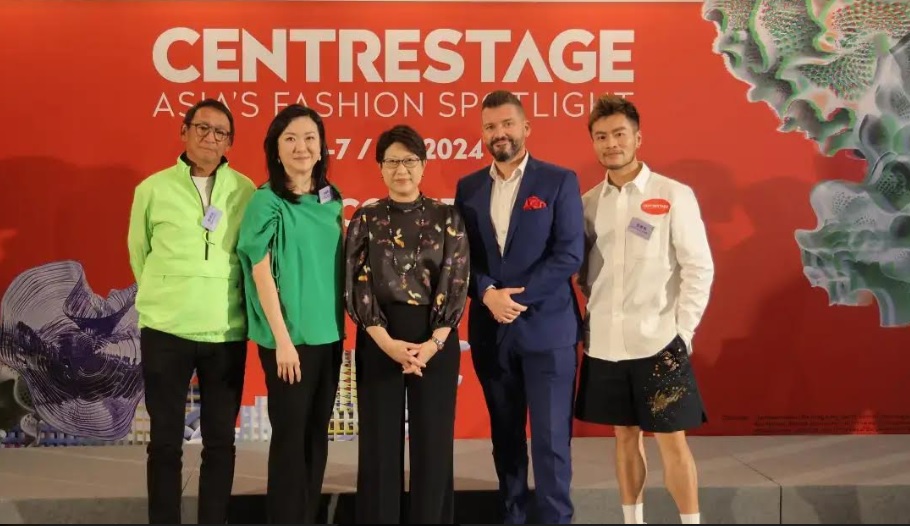
The intersection of heritage and innovation was the focal point of a ground breaking collaboration between US-born golf brand Ashworth and emerging Hong Kong label Mountain Yam, unveiled at the Centrestage Hong Kong trade show. The capsule collection, a testament to the duo's shared passion for sports and fashion, marked a significant step towards modernizing traditional golfing apparel.
A match made in heaven
Ashworth, renowned for its technical expertise in golfing apparel, contributed its decades of experience to the collaboration. Mountain Yam, known for his bold prints and vibrant colour palettes, infused the collection with a youthful and contemporary aesthetic. The resulting synergy was evident in the "evolution" theme that underpinned the collection, transforming traditional golf wear into cutting-edge athleisure fashion.
For Mountain Yam, the collaboration was a new venture into the world of performance sportswear. "The collaboration started because we both love sports," the designer explained. "Ashworth usually offers traditional golf wear, and we wanted to add more elements into their line so it was wearable on a daily basis."
Casualizing golf wear The collaboration aligned with Ashworth's broader strategy of infusing fashion into golf, a trend that has gained significant traction among Hong Kong consumers. The runway show at the Hong Kong Convention and Exhibition Centre on September 4 showcased the capsule collection as the grand finale, contrasting starkly with the more traditional looks presented earlier.
"Working with Yam was Ashworth's first step into casualizing part of its offering," said William Fu, CEO of YGM Trading. "He understood the more commercial side to the collaboration. You have to have a sense of that, because at the end of the day, we are not couture."
The rise of athleisure
The collaboration comes at a time when athleisure is experiencing a resurgence in popularity. The summer of sports, from the Olympics to the Euros, has ignited a renewed interest in athleticism. Golf, in particular, has maintained a steady demand despite fluctuations in other parts of the apparel industry.
In Hong Kong, golf has a long-standing appeal, driven in part by the city's British colonial heritage. YGM Group's acquisition of Ashworth in 2019 was a strategic move to capitalize on the sport's rising popularity.
YGM's Focus on Hong Kong
YGM Trading, the Hong Kong-based firm that owns Ashworth, has been expanding the brand's presence internationally. While the company has faced challenges in Mainland China, it remains committed to the Hong Kong market, where golf continues to enjoy steady growth.
"Centrestage is more focused on local brands, local designers," William explained. "So the reason we attended was, firstly, because of Mountain and so that we could show our support for local designers, to help them get onto a different stage."
As Ashworth continues to evolve and innovate, the collaboration with Mountain Yam is a testament to the brand's commitment to staying relevant in the ever-changing world of fashion and sports. With future collaborations with other young designers in the pipeline, Ashworth is poised to make a significant impact on the athleisure market.
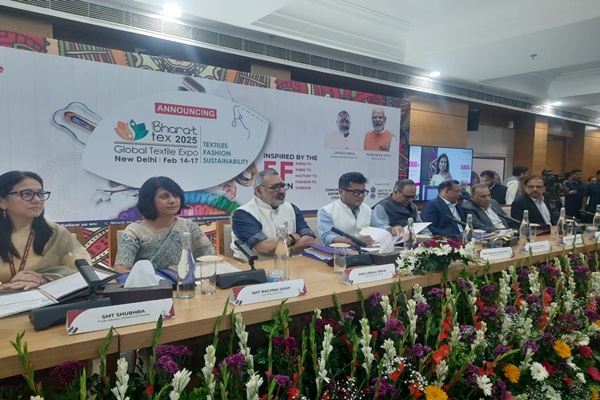
Bharat Tex 2025 is poised to redefine the Indian textile industry, offering a unique blend of trade, innovation, and fashion. Scheduled for February 14-17, 2025, this event promises to be a global hub for textile manufacturers, suppliers, and retailers.
A ‘Fashion-Forward’ focus
One of the most exciting aspects of Bharat Tex 2025 is its emphasis on fashion. The dedicated ‘Fashion Zone’ will showcase the latest trends, designs, and sustainable practices in the Indian fashion industry. Visitors can expect to see designer collections, brand showcases, and informative workshops led by industry experts.
Sustainability at the forefront
As the world becomes increasingly conscious of environmental impact, Bharat Tex 2025 is committed to promoting sustainable textile practices. From eco-friendly materials to ethical production methods, the event will highlight the latest innovations in sustainable fashion.
A global marketplace
Beyond fashion, Bharat Tex 2025 offers a comprehensive platform for the entire textile value chain. With over 5,000 exhibitors and 6,000+ international buyers, the event is a prime destination for sourcing textiles, machinery, and accessories.
Key highlights:
Global Trade Fair: Explore the latest products and technologies from around the world.
Textiles Conference: Gain insights from industry leaders on emerging trends and challenges.
Fashion Zone: Discover the latest in Indian fashion design and sustainability.
High Street Retail Zone: Connect with fashion retailers and explore opportunities in India's growing market.
B2B and G2G Meetings: Network with potential partners and clients.
Bharat Tex 2025 is more than just a trade show; it's a celebration of the Indian textile industry's rich heritage and bright future. With its focus on fashion, sustainability, and innovation, the event is set to become a must-attend for anyone involved in the textile and fashion sectors.


